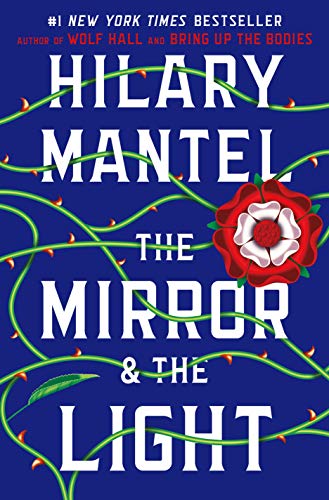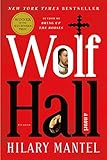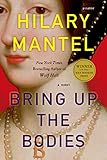With the publication of Wolf Hall—the first book in what was to become a trilogy chronicling the life of Thomas Cromwell, the lowborn man who became one of Henry VIII’s closest advisers—in 2009, novelist Hilary Mantel became a global superstar. Three years later, its sequel, Bring Up the Bodies, cemented the deal. Now, Mantel wraps up the most critically acclaimed and widely-read historical fiction saga of the 21st century with The Mirror and the Light, which begins with the death of Anne Boleyn and ends with the death of Cromwell himself. On the eve of the book’s publication, we asked Mantel about the challenges of writing historical fiction, what it was about Cromwell she found so fascinating, and what tricks of the trade she relied on.
The Millions: You recently told The New York Times that, now that you’ve finished telling the story of Thomas Cromwell, you’ve finished with historical fiction and will pivot to writing plays. What is it about Cromwell that made his story irresistible where others were not?
Hilary Mantel: I’ve had Cromwell in view all my writing career. It seemed like a story with endless ambiguity, which is what sustains a writer. You can’t completely account for Cromwell and you can’t add him up. There’s so much we will never know, and what attracts me as a novelist is the combination of documented fact—the heavily-inked paper—and what’s missing and unknown—the white space.
TM: Which characters in the Court of King Henry VIII were you surprised to find yourself drawn to throughout your research, besides Cromwell?
HM: I try to see my characters through Cromwell’s eyes—that’s the essence of the enterprise. So I find Thomas More endlessly intriguing. Among less famous figures, I’m drawn to Rafe (or Ralph) Sadler, Cromwell’s apprentice, who grew up in his household. Rafe survived Cromwell and survived Henry, and was still working for the Tudor dynasty in his 80s.
TM: What do you think it says about your readership in the U.S. that so many were drawn to a nearly 1,800–page trilogy chronicling 16th-century English politics?
HM: Perhaps it shows that it’s about more than 16th century politics—that it addresses certain lasting truth about power and sex and love, public image, and private dreams.
TM: Setting aside the work of Mary Robertson, which you’ve often cited as a major influence, what sorts of works did you find yourself drawn to: primary or secondary sources? narrative or scholarly histories? historiographies? Why?
HM: I found myself drawn to the sources. I like to get as close to the 1530s as I can. One of my tasks was to reappraise Cromwell, who has not been well-served by biographers or popular historians till very recently. Now there has been a new interest in him, a return to source, and an end—I trust—to the rolling forward of some of the old mistakes and misperceptions.
TM: What’s a skill you developed over the course of writing the series that is specific to adapting a historical saga into a work of fiction?
HM: I think I developed my skills in handling information when I wrote my first big historical novel, A Place of Greater Safety, set during the French Revolution. I’m old-fashioned, and believe in a card index—or a series of them, as needed. The making of them is what puts the data into your head. But only time and imagination makes that data personal and useful.
TM: What are some works of historical fiction you find extraordinary that have flown under the radar and that you hope readers of your series will find and read?
HM: Barry Unsworth had a robust historical imagination, and won the Booker prize for Sacred Hunger, but less famous is his novel Losing Nelson, where a present-day observer interrogates the legend of the 18th-century admiral, and has to rethink his hero worship. It’s this questioning attitude that speaks to me.
TM: This book was initially due to publish in 2018, and the British press hasn’t let you forget it. Is this a case of journalists not understanding how, or the pace at which, novelists and historians work?
HM: The press has all sorts of fantasies about dates when books are due. (I have even seen announcements of books I have not started, and perhaps never will.) But as you imply, novels take their own time, and my publishers in every country were willing to let me have the time I needed. But it is mildly irritating to be told you are “blocked,” when you are writing every day of the week.
TM: What’s harder for you: finding the right fact, or turning the right phrase?
HM: The first needs some luck and the second needs plenty of practice.
TM: What one fundamental aspect of history do you wish readers, or the culture at large, knew that you now know after years of researching the period you’ve fictionalized?
HM: The past has to be respected and valued for its own sake. It is not a rehearsal for the present, and its people are not us in a primitive form.















